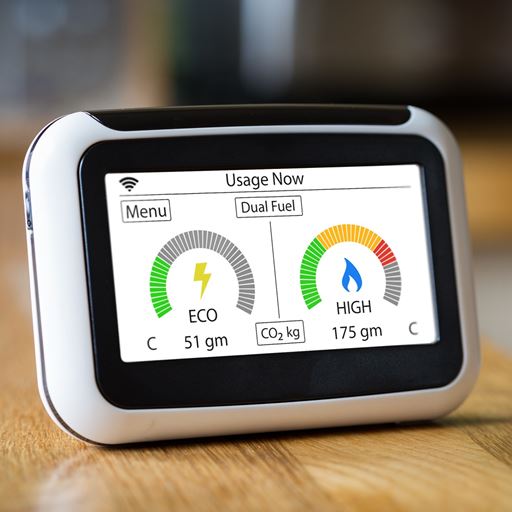Psychologists are striving to help reduce the nation’s energy consumption by advising on measures companies can take to make smart meters more effective – a move which would benefit both the individual and the environment.
The challenge
By 2024 every home in the country will have been offered a smart meter to measure their gas and electricity consumption. The aim is to make billing more efficient and accurate – the meter automatically sends readings to the energy supplier, so the householder doesn’t need to, and bills are based on the energy actually used, rather than on estimates. It was also hoped that by giving home owners detailed information about their energy usage smart meters would reduce energy consumption.
But research by psychologists Dr Kathryn Buchanan and Professor Riccardo Russo proved this aspect was unlikely to succeed unless householders also took action.
What we did
Experience from the first meters installed found energy use only dropped in some households. Researchers set out to find out why and what could be done to make sure all homes reduced consumption – a move which would benefit both the individual, whose bills would be lower, and the environment.
They focused their investigations on how householders used and responded to the information provided by their smart meters.
“We found the home owners ability to interpret the information they were being given and their motivation to make changes were crucial to how successful they would be at reducing consumption. We also found that after an initial honeymoon period householders lost interest in their smart metres so long-term reductions in energy use would be hard to achieve,” said Dr Buchanan.
In a separate study into energy vampires – appliances which continue to use electricity when left on standby – they discovered that telling people how much they could save by switching off at the mains was not enough to make them change their habits.
What we changed
After presenting their findings to both the Government and major players in the energy sector, Dr Buchanan went on secondment to Green Energy Options – a major supplier of smart meters to the UK’s main energy providers including British Gas, E.ON, EDF and SSE, as well as to international clients in the Netherlands, Norway and Sweeden.
She was commissioned to conduct a large-scale survey into the benefits and shortcomings of smart meters. This included looking at different models and questioning how often householders used them.
In further research she found users were confused by the information they were being given by the smart meter, and an accompanying app. She made recommendations to make the visuals clearer, and less open to misinterpretation, and these have been incorporated into later designs. The original keyboard, which Dr Buchanan discovered home owners found hard to use, has also been replaced by a more user-friendly version.
The research has helped reinforce the Government’s commitment to putting consumer engagement at the heart of the smart meter roll-out in Great Britain.



